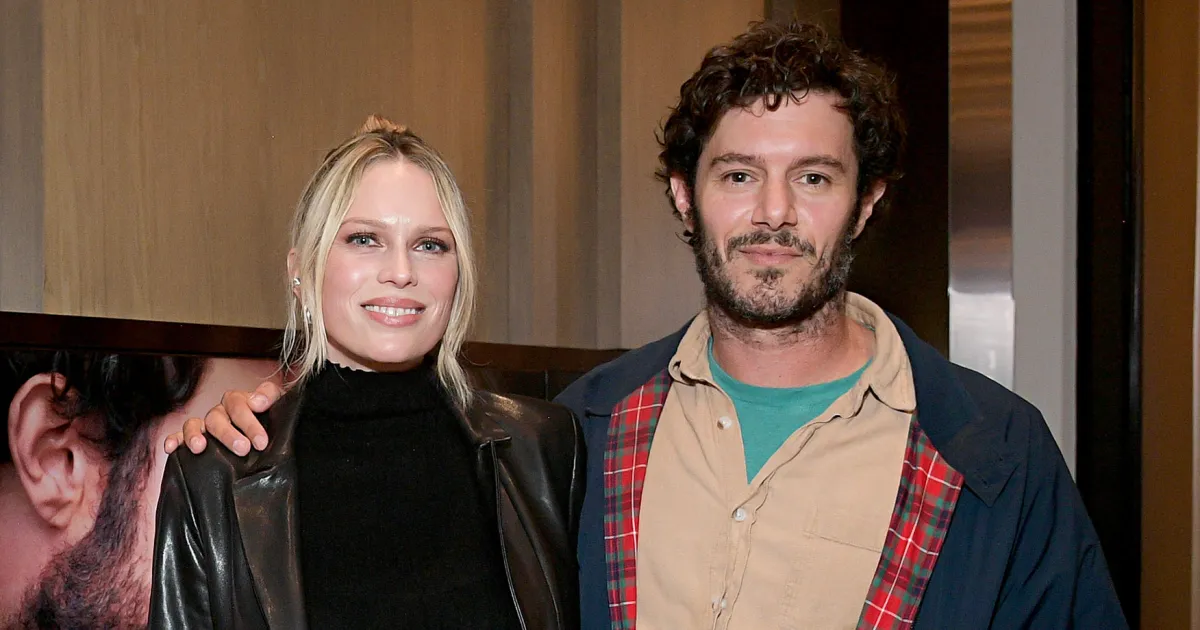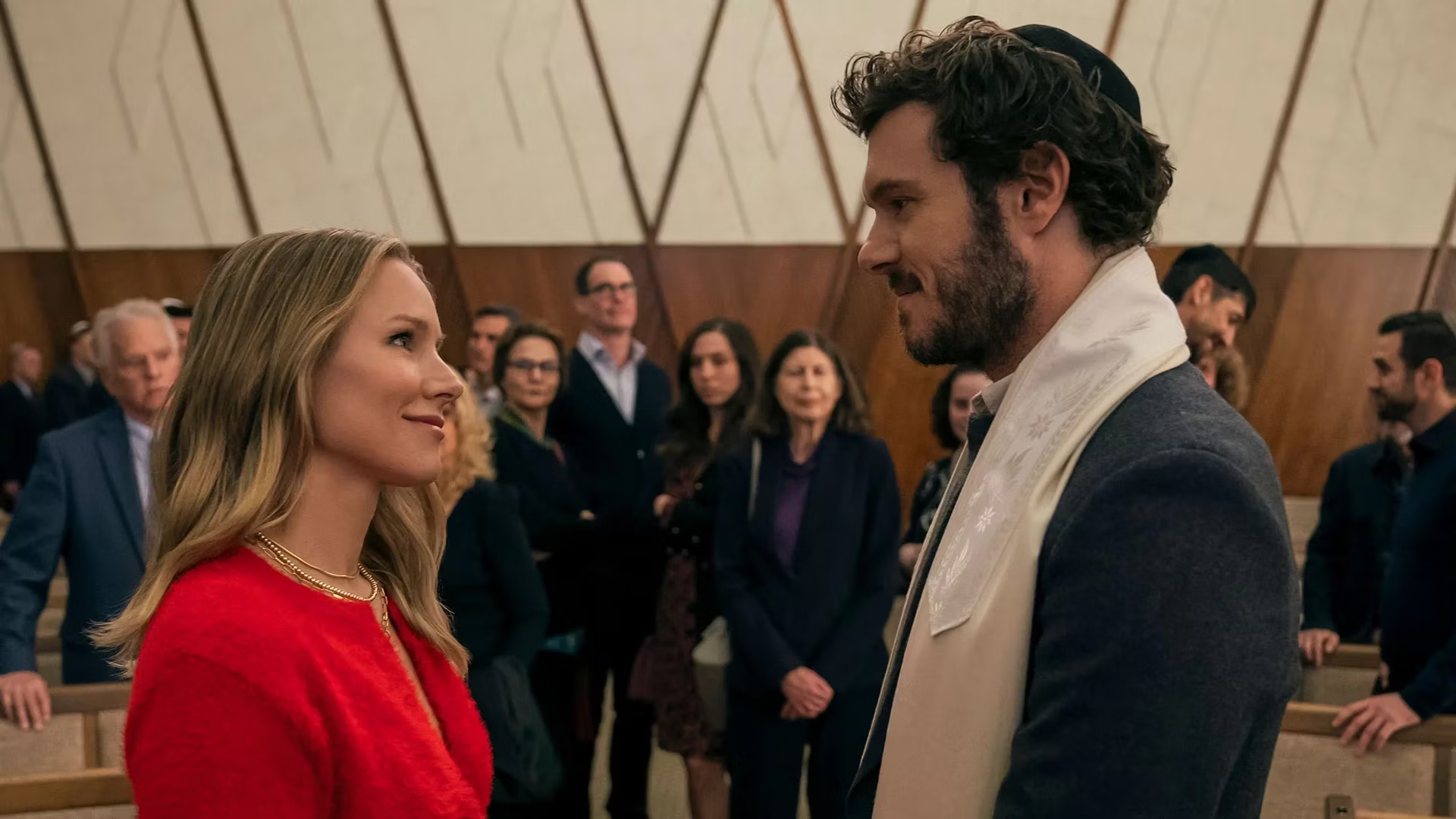Erin Foster has created a Netflix hit with her new series Nobody Wants This , which is rapidly climbing Netflix’s most-watched charts and rekindling fans’ admiration for star Adam Brody. However, the show has also drawn criticism.
Foster has faced backlash over the show’s portrayal of Jewish women. Adam Brody plays Noah, a rabbi who falls for agnostic podcast host Joanne (Kristen Bell).
However, Noah’s Jewish family doesn’t immediately embrace her. While Noah’s mother, an immigrant, is depicted with some stereotypical traits, most of the criticism centers around the portrayal of his controlling, nagging sister-in-law Esther and his marriage-obsessed ex-girlfriend Rebecca, who finds and begins wearing an engagement ring she discovers in his locked desk drawer.
In one scene at the end of the first episode, after Noah finishes delivering a sermon, a group of mothers and aunts rushes to introduce him to their single daughters and nieces. One mother even proudly declares, “She just got over shingles!”
Jessica Radloff echoed this, recalling how she told her mom, “I can’t imagine any guy watching this show and then thinking, ‘I really want to date a Jewish girl!’ We come across as controlling, marriage-hungry women who want to throw dinner parties and alienate anyone who doesn’t share those dreams.”
The series is inspired by Foster’s own life. She converted to Judaism before marrying her husband, Simon Tikhman. In an interview, Foster explained that the storyline of the Netflix rom-com was intentional.
“I think we need positive Jewish stories right now,” she said.
“It’s interesting when people point out, ‘Oh, this is a stereotype of Jewish people,’ especially when the lead character is a rabbi. A hot, cool, young rabbi who smokes weed—that’s the opposite of how people typically see a Jewish rabbi, right?”
Foster, co-founder of Favorite Daughter, elaborated, “If I had portrayed Jewish parents as granola hippies living on a farm, someone would write, ‘I’ve never met a Jewish person like that. You clearly don’t understand Jewish culture.’ No matter what, someone will find fault.”
She hopes the show’s 10-episode season presents a lighter take on Jewish culture while still educating viewers on its nuances.

“I wanted to shine a positive light on Jewish culture, based on my experience being welcomed into it, sprinkling in fun and educational moments about Judaism that I love without it being too heavy-handed,” she added. “I don’t think people want that in this kind of show.”
Foster also wanted to highlight the challenges faced within the Jewish community.
“It was important to me that Noah’s parents were immigrants because immigrant culture is different from American Jewish culture,” she explained.
“Simon’s parents fled the Soviet Union because they were Jewish, which is a vastly different experience than growing up in L.A. without encountering the kind of antisemitism they faced. It’s a sensitive topic and close to their hearts.”
When asked if the show addresses the ongoing conflict between Israel and Palestine, Foster stated she didn’t feel it was her place to comment through the series.
“This show isn’t about addressing the political climate or the conflict happening right now,” she said.
“That’s not what people are watching this for, and I’m not the right person to tackle that issue, especially since I didn’t grow up Jewish.
I have a perspective as a person in the world, but it wouldn’t be appropriate for the show to speak on behalf of so many people.”
Foster also shared that, unlike the tension depicted between Joanne and Noah’s family, she has a strong relationship with the Tikhmans.
She wanted to reflect the challenges that can arise when someone marries into a different culture, though she is glad it wasn’t her own experience.
“They never had an issue with me, because me converting to Judaism was such an honor for them,” she said. “Bringing someone into the Jewish faith was like the ultimate daughter-in-law move; it really bonded us.”


